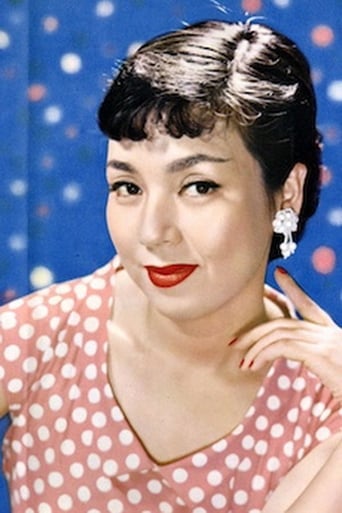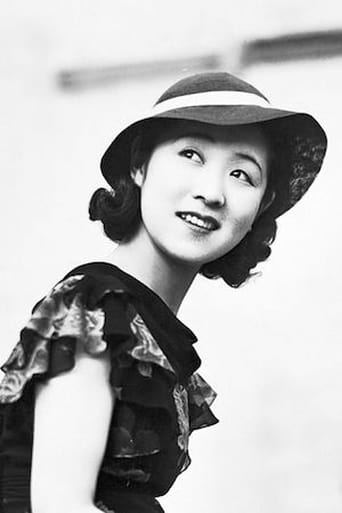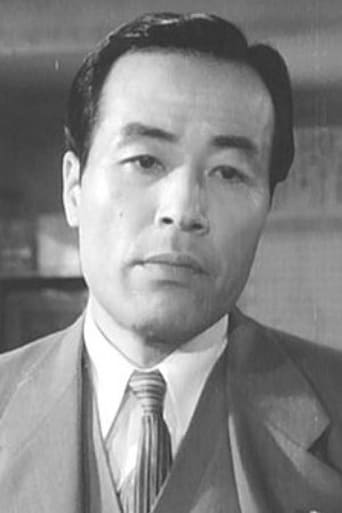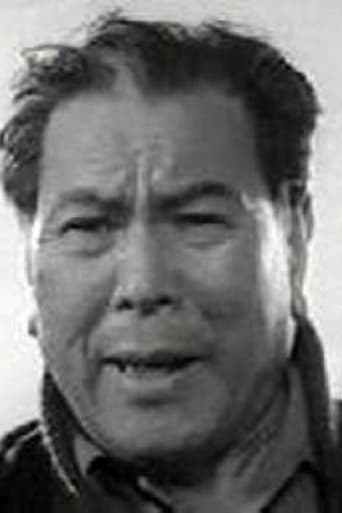Matialth
Good concept, poorly executed.
Taraparain
Tells a fascinating and unsettling true story, and does so well, without pretending to have all the answers.
Humbersi
The first must-see film of the year.
Derrick Gibbons
An old-fashioned movie made with new-fashioned finesse.
lamtruongtho
The soundtrack is very awesome, great and execellent work. This Japanese movies is so beautiful, surprise and amazing to watch. About the fantasy is so beautiful and great but also sad about the war and the mother of the boy is boy. And I see the great acting of the actors and actresses.
Jackson Booth-Millard
This Japanese film is one of many I found because it was featured in the book 1001 Movies You Must See Before You Die, and it was rated very highly by critics, so I was looking forward to sitting down and watching it, directed by Kenji Mizoguchi (The Story of the Last Chrysanthemums, Sansho Dayu). Basically set in the 16th century, in the farming village Nakanogō, on the shore of Lake Biwa in Ōmi Province, it is the beginning of Spring, during the period of the Japanese Civil Wars. Family man farmer and craftsman Genjurô (Masayuki Mori) travels to Nagahama, he plans to sell his wares and make a small fortune, he is joined by his neighbour Tobei (Eitarô Ozawa), who has a foolish dream to become a samurai, but he cannot afford the outfit. Genjurô and Tobei become greedy working together, manufacturing clay potteries, and selling the pieces to enrich themselves, but the army of the cruel Shibata Katsuie is invading their home village, Genjurô's wife Miyagi (Kinuyo Tanaka) and Tōbei's wife Ohama (Mitsuko Mito) are worried and warn their ambitious husbands. The village is looted, but the families flee and survive, Genjurô and Tobei decide to travel with them by boat to the city, however, following a pirate attack, Genjurô leaves Miyagi behind, promising to return in ten days. Genjurô, Tobei and Ohama make a good amount of money selling the pottery, but Tomei leaves his wife to buy the samurai outfit and seek fame and fortune. It is after presenting the severed head of an army general to a commander that Tobei is rewarded with armour, a mount, and a retinue, he returns looking for Ohama eager to show her, he is shocked to find she has been working in a brothel as a prostitute. Meanwhile female aristocrat Lady Wakasa (Machiko Kyô) shows an interest in the pottery, invites Genjurô to her mansion and tries to seduce him. In the end, Tobei throws his armour into a river and returns with Ohama to Nakanogō, while Genjurō had been dreaming of reuniting with Miyagi, but after returning to reality his neighbour tells him that his wife is dead, but her spirit assures him she will always be with him. I did my best to concentrate as much as possible, carefully reading the subtitles and keeping up with what was going, it was a fairly simple story of two peasants trying to support themselves and their families, but having consequences in doing so, specifically for their wives, there are some really good visuals, and the costumes are indeed impeccable, what I can remember, all in all it was an interesting period melodrama. It was nominated the Oscar for Best Costume Design. Very good!
avik-basu1889
'Ugetsu' is a Japanese film directed by Kenji Mizoguchi based on stories in Ueda Akinari's book titled Ugetsu Monogatari. At the basic level, this is a story about survival during the Japanese Civil Wars in the late 16th century. The film follows two married couples namely Genjurō and Miyagi, Tōbei and Ohama of the Ōmi Province. They get uprooted along with a lot of other families when their village gets attacked by Shibata Katsuie's army. Genjurō being a potter decides to go to Ōmizo to sell his wares to earn money. He goes to Ōmizo with Tōbei and Ohama while Miyagi decides to stay back and take care of Genichi(Miyagi and Genjurō's son). While in Ōmizo, Genjurō gets attracted to the mysterious and enigmatic Lady Wakasa and becomes overwhelmed by his interest in her, and Tōbei, who was always a bit of a delusional dimwit, gets more and more inclined towards living the life of a samurai and show-off his bravery and strength. Tōbei ends up seeking out Samurai soldiers leaving his wife Ohama alone and helpless during chaotic wartime.Along with 'Rashomon', 'Ugetsu' is considered by many critics to be the film that opened doors for Japanese cinema in the western world and gave the cinema in Japan a global exposure. Like 'Rashomon', this film was also based on Japanese folk tales, but Mizoguchi's humanist filmmaking made it relevant for the 1950s and its relevance hasn't waned at all in the last 50 years. 'Ugetsu' belonged to a whole line of films that got released after WWII along with 'Rashomon', 'The Bicycle Thief', 'The Planes are Flying', 'Ivan's Childhood', etc. which looked at war in a critical way instead of glorifying. They critiqued the very purpose of war by brutally depicting its devastating consequences. Although 'Ugetsu' is set in 16th century Japan during the Japanese Civil War, for me it clearly is an allegory for Japanese society during WWII and the allegory here is a lit bit more overt and obvious than the same in 'Rashomon'.This can surely be seen as a feminist film. We see the men fall prey to puerile ambitions and greed, while the women are left helpless and asked to fend for themselves during a time of war when they are more prone to danger and harm with ravenous and wild warriors running around everywhere. But the women in the film do what they have to do without showing any fear and without accepting defeat. After watching this film, I don't think it is possible for anyone to not fall completely in love with the character of Miyagi. She has unconditional love for her husband Genjurō and their son Genichi. She does whatever she has to, to make sure her son survives under difficult, harsh conditions, when Genjurō was spending time with Lady Wasaka. This film shows the hopeless nature of gender inequality that existed in medieval Japan and how women were extremely vulnerable.The film as I mentioned before is an allegory for the Japanese society and the Japanese political system in the WWII era. Like Tōbei, some men are too drawn to the idea of power and will go to any lengths to prove to others that they are powerful by engaging in pointless fights. Genjurō represents those people who being led by unrestricted greed want to utilise war in their own way by making use of people's troubles to fill up their pockets. Lady Wasaka is very mysterious and interesting character. She is a very Mephistopheles- like character who lures Genjurō into her world by promising him eternal happiness, wealth and love. The Faust-esque Genjurō falls for her and abandons his own family. If the people sitting on thrones are led by the greed for power and the greed for lust and wealth, it can sometimes lead to irreparable damage to their country and its people. This might sound preachy, but the film presents this through the screenplay instead of blatant sermons. The film is also a commentary on the disappearance of Buddhist ideals and principals in modern Japanese society.Along with Mizoguchi's style of storytelling, one can't help but admire the skill of his camera work. The film has many beautiful wide shots which serve both purposes - beauty as well as thematic relevance. There are some seamless transitions from one scene to another. Mizoguchi also beautifully builds tension and sets a Gothic creepy atmosphere in certain scenes which lends the film a genuine horror element. However, 'Ugetsu' like 'Rashomon' ends in a very optimistic and emotional note.'Ugetsu' is a film whose importance and significance in film history can never be questioned. It is an artistic allegory of life during wartime. As long as the concept of war exists in human society, this film will continue to have significant relevance.
Andres Salama
When this ghost story set in Japan's medieval era won the top prize at the Venice film festival in 1953, it showed the rest of the world that Rashomon was no fluke, and that something extraordinary was happening in Japanese cinema. Today we can see that Japanese movies during the 1950s are one of the highlights of the history of cinema, with directors like Kurosawa, Ozu, Mizoguchi and Naruse actively working (sometimes making several movies a year) as well as slightly lesser accomplished directors (Ichikawa, Masumura, Kobayashi, Kinagasa or Oshima and Imamura just starting their respective careers)Ugetsu was widely regarded as among the best films ever made during the 1960s and 1970s. Its reputation has slightly fallen since then, and many people consider now that Mizoguchi made better movies. Using the director's characteristic long takes, it is heavy going at times, especially in the middle section. But it has wonderful scenes, like the one with the trip by boat in a foggy night. It is a movie that any serious cinema buff should see.With Masayuki Mori, Machiko Kyo (they were respectively the samurai and his wife in Rashomon) and Kinuyo Tanaka, among others.






